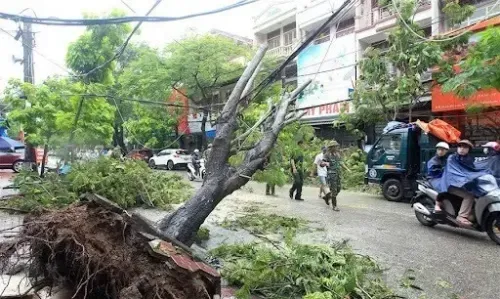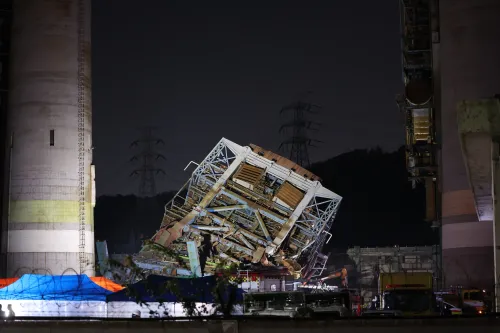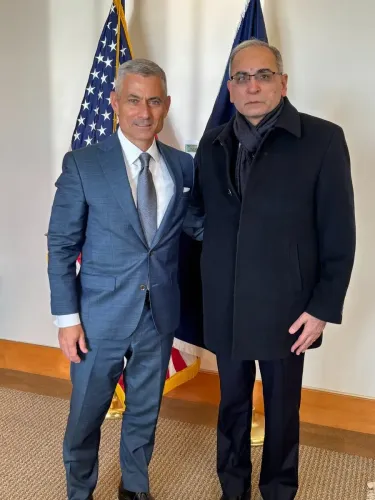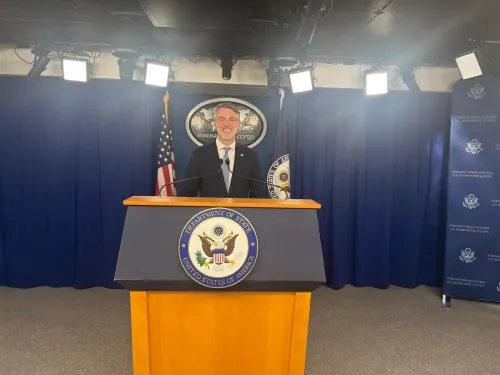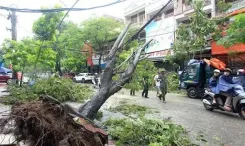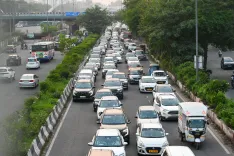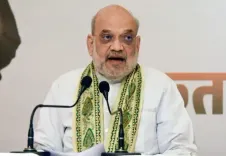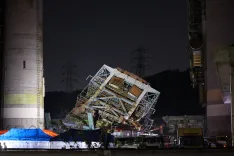Is the South Korean Government Ready to Restart Summit Diplomacy After the New President Takes Office?
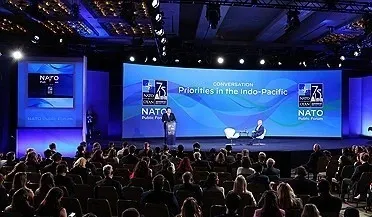
Synopsis
Key Takeaways
- South Korea's foreign ministry is preparing for a diplomatic revival.
- High-level diplomacy will resume after the June 3 presidential election.
- Upcoming events include the G7 summit and NATO gathering.
- A leadership vacuum since Yoon's martial law bid has stalled diplomacy.
- The new president may meet key world leaders, including US President Trump.
Seoul, May 13 (NationPress) The South Korean foreign ministry is gearing up to reinstate diplomacy at the leaders' level once the new administration is established following the June 3 presidential election, an official disclosed on Tuesday. This comes amid a prolonged leadership vacuum resulting from former President Yoon Suk Yeol's attempt to impose martial law.
Since Yoon's short-lived martial law declaration on December 3, which ultimately resulted in his impeachment and ousting, South Korea's diplomatic efforts, particularly at the high level, have been largely stagnant due to this leadership void.
A series of significant multilateral diplomatic events are slated for next month, including the Group of Seven (G7) summit in Canada and the North Atlantic Treaty Organization (NATO) leaders' meeting in the Netherlands.
If confirmed, these events are anticipated to mark the initial stage of the new president's diplomatic engagement, potentially allowing him to hold bilateral discussions with prominent world leaders, including US President Donald Trump.
"We are undertaking essential preparations to resume summit diplomacy once the new government assumes office post the June 3 presidential election," a ministry official informed reporters.
"We are readying ourselves in terms of both content and protocol to guarantee that diplomatic activities proceed seamlessly under any circumstances," he emphasized.
Although South Korea is not a G7 member, it was invited to participate in the expanded G7 sessions in 2021 and 2023, with Britain and Japan serving as host countries, respectively.
Recently, South Korea has also been invited to NATO summits as one of NATO's four Indo-Pacific partners, known as the IP4, alongside Japan, New Zealand, and Australia, as reported by the Yonhap news agency.
Yoon, who swiftly transitioned from a top prosecutor to the presidency in under three years, became the nation’s second president to be formally removed from office. His unexpected attempt to impose martial law unsettled the country for months and exacerbated political polarization.
Yoon, aged 64, follows in the footsteps of former President Park Geun-hye, who was ousted in 2017 when the Constitutional Court upheld her impeachment over a corruption scandal.
Prior to assuming the presidency, Yoon began his career as a prosecutor in 1994, ascending the ranks to lead an investigation team into Park's corruption scandal that ultimately resulted in her removal and imprisonment.
In 2019, he was appointed as the nation’s top prosecutor under President Moon Jae-in, but he had conflicts with the administration while supervising investigations into family members of former Justice Minister Cho Kuk.
Under increasing pressure from the Moon administration, Yoon resigned from his position in 2021, shortly entering politics and winning the presidential election in 2022 as the candidate for the conservative People Power Party.
Yoon's presidency was marked by conflict with a National Assembly dominated by the main opposition Democratic Party (DP). He utilized his presidential veto power against 25 bills passed by the National Assembly.
Tensions with the DP escalated dramatically in early December, as the opposition introduced motions to impeach the country’s top auditor and a senior prosecutor, prompting Yoon to declare martial law on December 3, which ultimately led to his downfall.

